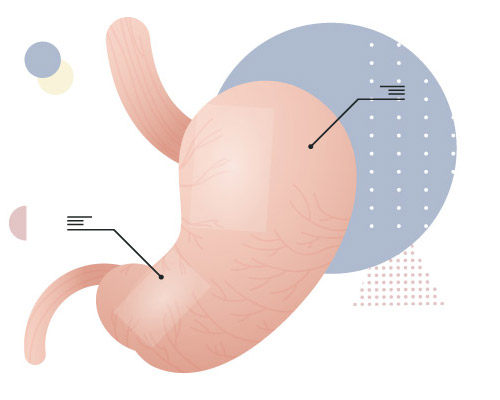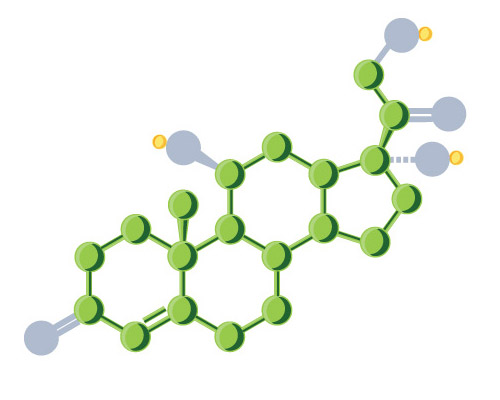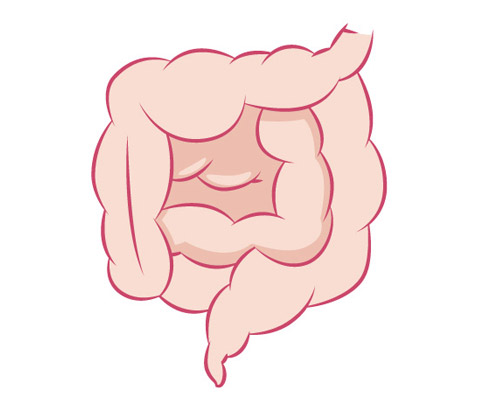Human Microbiome
A HIGHLY ADAPTED HUMAN ORGAN
Human Commensal Microbiota refers to the microbial flora naturally living in human body and the total collection of all of their genes is called Human Microbiome. The commensal flora and their gene products plays a critical role in maintaining our Health & Longevity
The HUMAN COMMENSAL MICROBIOTA refers to the aggregate of microorganisms that live in our human body and HUMAN MICROBIOME refers to their total genomes.Microbiome’s health and diversity is a growing theme in medical research for treating autoimmune, infectious, and metabolic diseases.

Digestive Functions
- Enhances digestion by producing enzymes, vitamins & growth factors
- Produces gut hormones, & balances intestinal pH
- Control the gut motility & proper colonic tone for bowel movement

Digestive Functions
- Enhances digestion by producing enzymes, vitamins & growth factors
- Produces gut hormones, & balances intestinal pH
- Control the gut motility & proper colonic tone for bowel movement
Metabolic Functions
- Regulates energy balance by harvest & expenditure from diet
- Controls Appetite & satiety
- Control adiposity & body weight maintenance
- Proper cholesterol metabolism for cardiovascular health

Metabolic Functions
- Regulates energy balance by harvest & expenditure from diet
- Controls Appetite & satiety
- Control adiposity & body weight maintenance
- Proper cholesterol metabolism for cardiovascular health
Longevity & Healthy Aging Functions
- Produces longevity enhancing metabolites from diet such as Urolithins, Quercetins etc
- Produces anti-cancer metabolites from natural compounds
- Regulates & balances key endocrine hormones

Longevity & Healthy Aging Functions
- Produces longevity enhancing metabolites from diet such as Urolithins, Quercetins etc
- Produces anti-cancer metabolites from natural compounds
- Regulates & balances key endocrine hormones
Immune Functions
- Proper maturation and maintenance of immune tissues
- Control and maintain immune homeostasis
- Produces immune-molecules such as butyric acid, antimicrobial peptides, key signaling molecules, natural antibiotics
- Prevents the growth of disease-causing pathogenic bacteria

Immune Functions
- Proper maturation and maintenance of immune tissues
- Control and maintain immune homeostasis
- Produces immune-molecules such as butyric acid, antimicrobial peptides, key signaling molecules, natural antibiotics
- Prevents the growth of disease-causing pathogenic bacteria
Anti-Inflammatory Functions
- Enhance the gut barrier function to reduce “leaky gut-mediated inflammation”
- Produces anti-inflammatory molecules
- Reduces LPS mediated chronic inflammation
- Enhances skin barrier function to reduce dermatological allergic diseases

Anti-Inflammatory Functions
- Enhance the gut barrier function to reduce “leaky gut-mediated inflammation”
- Produces anti-inflammatory molecules
- Reduces LPS mediated chronic inflammation
- Enhances skin barrier function to reduce dermatological allergic diseases
Brain Functions
- Gut-brain axis modulates behaviors –mood, emotion, stress response, appetite, addiction
- Microbiome regulates tryptophan metabolism and the serotonergic system
- Gut microbiota has important function in visceral sensitivity & perception
- Produces neuroactive & cognitive enhancing metabolites
- Regulates circadian rhythm & proper sleep pattern

Brain Functions
- Gut-brain axis modulates behaviors –mood, emotion, stress response, appetite, addiction
- Microbiome regulates tryptophan metabolism and the serotonergic system
- Gut microbiota has important function in visceral sensitivity & perception
- Produces neuroactive & cognitive enhancing metabolites
- Regulates circadian rhythm & proper sleep pattern
GUT MICROBIOME IS OUR SECOND BRAIN!
Gut Microbiome is an organ in its own right and plays a key role in our life and our bodily functions.
That’s why we must take utmost care of it.
GUT MICROBIOME IS OUR SECOND BRAIN!
Gut Microbiome is an organ in its own right and plays a key role in our life and our bodily functions.
That’s why we must take utmost care of it.
Among the human microbes, gut commensal flora is the major one, which has far-reaching impact on human health.
- Gut Microbiome comprises of 100 trillion microbes and contains over 3 million
- Microbial genes Over 1,000 species of bacteria have been cataloged from gut flora and can weigh up to 2 kg!
- Our gut bacteria have evolved with us since birth and maintains a symbiotic with the gut environment. The human gut provides nutrients and a breeding environment for gut microflora; in turn, intestinal microflora evolved to have several key physiological functions for its host.
- GutMicrobiomeplay an important role in several metabolic processes and human diseases, such as obesity and accompanying co-morbidities, such as fatty liver disease, insulin resistance/diabetes, and cardiovascular events.
- Gut microbiome are in constant communication with our body’s cells; to the point that our gut flora is said to be our second brain!
Among the human microbes, gut commensal flora is the major one, which has far-reaching impact on human health.
- Gut Microbiome comprises of 100 trillion microbes and contains over 3 million
- Microbial genes Over 1,000 species of bacteria have been catalogued from gut flora and can weigh up to 2 kg!
- Our gut bacteria have evolved with us since birth and maintains a symbiotic with the gut environment. The human gut provides nutrients and a breeding environment for gut microflora; in turn, intestinal microflora evolved to have several key physiological functions for its host.
- GutMicrobiomeplay an important role in several metabolic processes and human diseases, such as obesity and accompanying co-morbidities, such as fatty liver disease, insulin resistance/diabetes, and cardiovascular events.
- Gut microbiome are in constant communication with our body’s cells; to the point that our gut flora is said to be our second brain!
Maintaining a Diversified & Healthy Microbiota
Is critical for Healthy Life and Longevity & is vital for All Stages of Life

By delivering Direct Health Benefits It can prevent occuracne of Chronic Diseases
Maintaining a Diversified & Healthy Microbiota
Is critical for Healthy Life and Longevity & is vital for All Stages of Life

By delivering Direct Health Benefits It can prevent occurrence of Chronic Diseases
MICROBIOME & HUMAN HEALTH
Human commesal microbiota is the sum total of all microbial flora naturally co-habiting in human body and the collection of all their genes is called Human Microbiome. The commensal flora and their gene products plays a critical role in maintaining our health and longevity
“The human microbiota is the aggregate of microorganisms that resides on the surface and in deep layers of skin, in the saliva and oral mucosa, in the conjunctiva, and in the gastrointestinal tracts and the human microbiome refer to their genomes. The microbiome is reckoned to have around 3 million functional genes compared to human beings 23,000 and the far larger genome of the microbiome has correspondingly greater capabilities in modulating human health and well being. Microbiome’s health and diversity is a growing theme in medical research for treating autoimmune, infectious, and metabolic diseases./
Everyone’s got a personal collection of microbiota. You could think of yours as your unique internal pet—at up to 3 percent of your body mass requiring nurturing and feeding. In turn, your microbiota provide essential services: extracting energy from food, absorbing and generating vitamins and amino acids and forming barriers against infective invaders. New studies are showing your microbiota might also fight diabetes, obesity and cancer; stimulate your immune system; break down toxins; and boost your overall health.
The gut microbiota has a crucial role in metabolic health, but researchers are only just determining the mechanisms underpinning this effect. Studies have found that specific class of bacteria that degrades mucin in the gut lining and can have beneficial effects on metabolic disorders
MICROBIOME & HUMAN HEALTH
Human commesal microbiota is the sum total of all microbial flora naturally co-habiting in human body and the collection of all their genes is called Human Microbiome. The commensal flora and their gene products plays a critical role in maintaining our health and longevity
“The human microbiota is the aggregate of microorganisms that resides on the surface and in deep layers of skin, in the saliva and oral mucosa, in the conjunctiva, and in the gastrointestinal tracts and the human microbiome refer to their genomes. The microbiome is reckoned to have around 3 million functional genes compared to human beings 23,000 and the far larger genome of the microbiome has correspondingly greater capabilities in modulating human health and well being. Microbiome’s health and diversity is a growing theme in medical research for treating autoimmune, infectious, and metabolic diseases./
Everyone’s got a personal collection of microbiota. You could think of yours as your unique internal pet—at up to 3 percent of your body mass requiring nurturing and feeding. In turn, your microbiota provide essential services: extracting energy from food, absorbing and generating vitamins and amino acids and forming barriers against infective invaders. New studies are showing your microbiota might also fight diabetes, obesity and cancer; stimulate your immune system; break down toxins; and boost your overall health.
The gut microbiota has a crucial role in metabolic health, but researchers are only just determining the mechanisms underpinning this effect. Studies have found that specific class of bacteria that degrades mucin in the gut lining and can have beneficial effects on metabolic disorders
MICROBIOME BALANCE:
CRITICAL FOR HEALTH
- Human gut microbiome coexists in a fine balance or symbiosis with human host that can easily be disturbed (dysbiosis). The gut microbiome slowly evolves from birth to a mature “core microbiome”.
- Each individual carry a highly evolved “core microbiome” which complements and synergistically support key physiological processes for human host.
- This core microbiome have a tendency to remain relatively stable throughout life, leading to the speculation that individuals might possess a unique microbial “fingerprint”, despite daily variations attributable to diet, lifestyle, age, and the host’s physiological and immunological health.
- A healthy gut and balanced microbiome can curb inflammation and cortisol levels, lower your reaction to stress, improve memory, and even reduce neuroticism and social anxiety. The metabolites produced by gut microbiome has far reaching impact on human health.
- The intestinal mucosal immune system constitutes the largest immune component in vertebrates, functioning closely with the intestinal microbiome; and their proper balance plays a key role in host homeostasis and defense.
Microbiomehomeostasis is critical for quality of life and longevity; any compromise on long-term
microbiome dysbiosis can affect your healthy life span!
MICROBIOME BALANCE:
CRITICAL FOR HEALTH
- Human gut microbiome coexists in a fine balance or symbiosis with human host that can easily be disturbed (dysbiosis). The gut microbiome slowly evolves from birth to a mature “core microbiome”.
- Each individual carry a highly evolved “core microbiome” which complements and synergistically support key physiological processes for human host.
- This core microbiome have a tendency to remain relatively stable throughout life, leading to the speculation that individuals might possess a unique microbial “fingerprint”, despite daily variations attributable to diet, lifestyle, age, and the host’s physiological and immunological health.
- A healthy gut and balanced microbiome can curb inflammation and cortisol levels, lower your reaction to stress, improve memory, and even reduce neuroticism and social anxiety. The metabolites produced by gut microbiome has far reaching impact on human health.
- The intestinal mucosal immune system constitutes the largest immune component in vertebrates, functioning closely with the intestinal microbiome; and their proper balance plays a key role in host homeostasis and defense.
Microbiomehomeostasis is critical for quality of life and longevity; any compromise on long-term
microbiome dysbiosis can affect your healthy life span!
MICROBIOME DYSBIOSIS:
A KEY CONTRIBUTOR TO METABOLIC AND
CHRONIC DISEASES & INFLAMMATION
When the core gut microbiome is imbalanced, the normal metabolic profile of the gut flora significantly alters, which can lead to several disease conditions such as autoimmune, digestive and metabolic diseases
- Dysbiosis of the gut microbiome is caused by the imbalance between the commensal and pathogenic microbiome. This occurs when a disturbance in the composition and function of beneficial bacteria makes them incapable of controlling the harmful bacteria successfully.
- Several factors can change the gut microbiome on a daily basis; dietary patterns, probiotics, prebiotics, synbiotics, antibiotics, and non-dietary factors, such as, genetics, stress, age, exercise, and climatic conditions, can dramatically impact the human gut microbiota equilibrium and diversity.
- Today, gut dysbiosis has been linked with important human diseases, not only infections, but also diseases such as diabetes, liver diseases, inflammatory bowel diseases, irritable bowel syndrome, obesity, diabetes, metabolic syndrome, cardiovascular diseases, allergy, asthma, neurological diseases, several cancers, celiac diseases, obesity, and other chronic conditions.
- Microbial dysbiosis is also correlated with gut barrier compromise and bacterial translocation, leading to increased inflammation and endotoxemia
- Endotoxins, produced by pathogenic bacteria, stimulated low-grade inflammation was understood as the prime mechanism by which gut microbiota induces obesity. Supplementation of prebiotics and probiotics addressed the therapeutic effects on the altered gut microbiota that provides us an opportunity to prevent or treat obesity.
MICROBIOME DYSBIOSIS:
A KEY CONTRIBUTOR TO METABOLIC AND
CHRONIC DISEASES & INFLAMMATION
When the core gut microbiome is imbalanced, the normal metabolic profile of the gut flora significantly alters, which can lead to several disease conditions such as autoimmune, digestive and metabolic diseases
- Dysbiosis of the gut microbiome is caused by the imbalance between the commensal and pathogenic microbiome. This occurs when a disturbance in the composition and function of beneficial bacteria makes them incapable of controlling the harmful bacteria successfully.
- Several factors can change the gut microbiome on a daily basis; dietary patterns, probiotics, prebiotics, synbiotics, antibiotics, and non-dietary factors, such as, genetics, stress, age, exercise, and climatic conditions, can dramatically impact the human gut microbiota equilibrium and diversity.
- Today, gut dysbiosis has been linked with important human diseases, not only infections, but also diseases such as diabetes, liver diseases, inflammatory bowel diseases, irritable bowel syndrome, obesity, diabetes, metabolic syndrome, cardiovascular diseases, allergy, asthma, neurological diseases, several cancers, celiac diseases, obesity, and other chronic conditions.
- Microbial dysbiosis is also correlated with gut barrier compromise and bacterial translocation, leading to increased inflammation and endotoxemia
- Endotoxins, produced by pathogenic bacteria, stimulated low-grade inflammation was understood as the prime mechanism by which gut microbiota induces obesity. Supplementation of prebiotics and probiotics addressed the therapeutic effect on the altered gut microbiota that provides us an opportunity to prevent or treat obesity.
MICROBIOME DIVERSIFICATION:
CRITICAL TO ACHIEVE OPTIMUM HEALTH & LONGEVITY
Balancing the gut microbiome with microbiome diversification is an effective future treatment for chronic inflammatory diseases
- Loss of microbial diversity is the prime cause of gut dysbiosis; the more diverse your gut microbiome is, the less chances of gut dysbiosis.
- Lack of microbiome diversity appears to diminish its ability to withstand perturbation and cause dysbiosis, a shift from normal homeostatic stage.
- Individuals who have reduced microbiome diversity showed a higher incidence of metabolic syndrome such as obesity and inflammatory bowel diseases
- A diversified diet can support diversity, however it is hard to achieve with
MICROBIOME DIVERSIFICATION:
CRITICAL TO ACHIEVE OPTIMUM HEALTH & LONGEVITY
Balancing the gut microbiome with microbiome diversification is an effective future treatment for chronic inflammatory diseases
- Loss of microbial diversity is the prime cause of gut dysbiosis; the more diverse your gut microbiome is, the less chances of gut dysbiosis.
- Lack of microbiome diversity appears to diminish its ability to withstand perturbation and cause dysbiosis, a shift from normal homeostatic stage.
- Individuals who have reducedmicrobiome diversity showed a higher incidence of metabolic syndrome such as obesity and inflammatory bowel diseases
- A diversified diet can support diversity, however it is hard to achieve with
